With interesting speakers and interactive group activities continued the 7-day joint-staff training event for youth workers within the project No. 2020-1-BG01-KA227-YOU-095019 “Entrepreneurship and connectivity of young people in the Balkans through creativity and culture”, co-funded by the Erasmus+ Programme, KA2. It is implemented by the Bulgarian Memory Foundation in partnership with the “Association for Macedonian-Bulgarian Friendship”, Bitola, Republic of North Macedonia and the Association “GLAS”, Bosilegrad, Republic of Serbia.
The program included panels that contribute to the main goal of the project – to create an innovative methodology for the development of entrepreneurship skills and creativity among young people in the Balkans. It will be developed and tested with 15 youth workers and 60 young people, contributing to their personal development, active citizenship and connectivity; strengthening the capacity of organizations involved in the cultural sector and being an open access educational resource.
On the fourth day of the programme Ms. Yanitsa Boycheva, politologist, presented to the participants some key aspects of cultural entrepreneurship and best practices in Europe related to its implementation and moderated a group activity related to the skills of the young entrepreneur and entrepreneurial culture. The participants developed their logical thinking and enjoyed working as a team.
Through group work, moderated by the Bulgarian Memory Foundation team, the participants acquired skills on how to behave in a business environment and a number of social, civic competences were developed among them, such as teamwork, confidence, leadership, intercultural skills, project work skills and communication in an intercultural environment.
On the fifth day of the event, Assoc. Prof. Dr. Svetla Boneva from the Department of International Economic Relations and Business at the UNWE, Sofia, Bulgaria, presented the topic of entrepreneurship in the context of intercultural differences. She sent a message to young people to learn as many languages as possible to expand their opportunities and to experience the diversity of people, cultures and customs, which would lead to new friendships, more valuable training and better subsequent realization. Dr. Boneva moderated a group activity where she presented inspiring examples of cultural entrepreneurship and gave basic behavioral guidance to participants when they find themselves in a cultural environment different from their own.
Angelina Vladikova, Chairperson of the “Bridges” Association, touched upon the topic of “Intercultural Dialogue as a Tool for Building Entrepreneurial Skills” and shared the best practices of her organization, whose mission is to build bridges of friendship between representatives of different religious communities and cultures. According to Ms. Vladikova, the language of art is a great way to reach people.
During the sixth day of the event, Zhivko Kosturov from the Bulgarian Memory Foundation team shared with the young people the opportunities that the Erasmus+ Programme provides during the 2021-2027 Programming Period. Emphasis was put on the priorities of the Programme, such as: social inclusion, environmental and digital transition, as well as promoting young people’s participation in democratic life.
Participants had the opportunity to visit the Intelligent Music Studio, which Dr. Milen Vrabevski created to promote Bulgarian music and culture. He is the author of the song “Intention” which represented Bulgaria at this year’s Eurovision Song Contest.
The program for the day ended with a tour to a number of Sofia’s cultural and historical monuments.
On the last day of the training, after their creative group work and interactive sessions, each of the youth workers received a certificate of participation, which was awarded to them by the Bulgarian Memory Foundation.
The information and views set out in this publication are those of the authors and do not necessarily reflect the official opinion of the European Union. Neither the European Union institutions and bodies nor any person acting on their behalf may be held responsible for the use which may be made of the information contained therein.



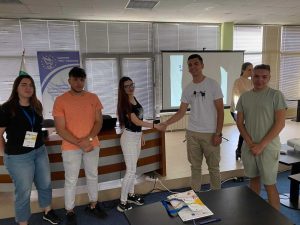
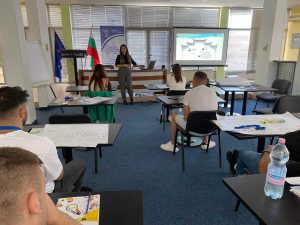
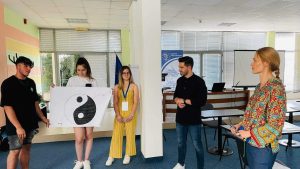
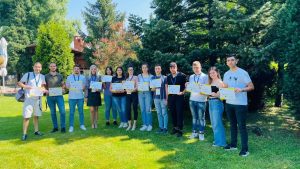
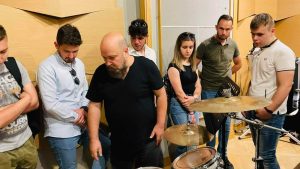
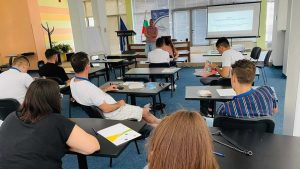
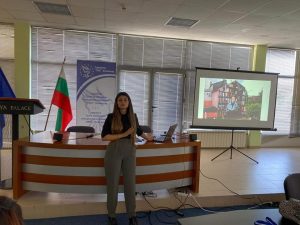
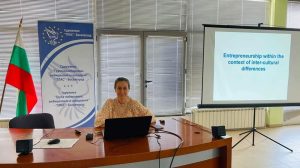
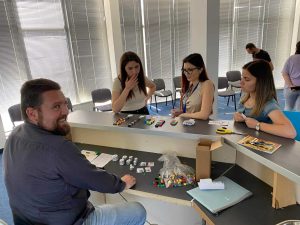

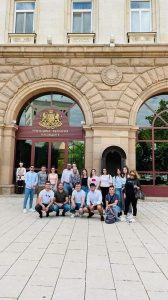
Comments are closed